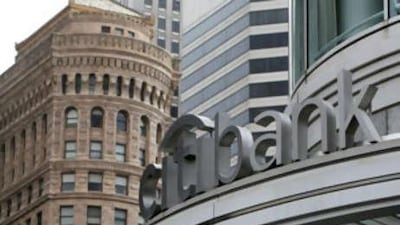ABU DHABI // Abu Dhabi and representatives from 25 other governments have agreed on a draft set of voluntary investment principles aimed at mollifying critics while ensuring that the estimated US$2.15 trillion (Dh7.89tn) in sovereign wealth funds (SWFs) they control remain competitive in global financial markets. The International Working Group of Sovereign Wealth Funds (IWG), organised by the International Monetary Fund (IMF) and co-chaired by Abu Dhabi, said late on Tuesday in Santiago, Chile, that it had reached a preliminary agreement on 24 generally accepted principles and practices for the funds to follow. The draft agreement, which must still be officially approved by each country's government before being presented to the IMF on Oct 11, commits the funds to strictly commercial investments and promises to avoid investing to achieve political goals. Sealed after two days of intense negotiations, the accord also strives to avoid promising any disclosures that would make it more difficult for SWFs to invest profitably. "A lot of the discussion focused on the need to preserve the economic and financial interests of the sovereign wealth funds, so as not to put them at a disadvantage when compared to other types of investors such as hedge funds, insurance companies, and other institutional investors," said Hamad al Suwaidi, the IWG co-chair, undersecretary of the Abu Dhabi Department of Finance and a director of the Abu Dhabi Investment Authority (Adia), in a conference call announcing the agreement. The group agreed to publish a survey of SWFs next week designed to shed more light on what they are and how they invest. It also agreed to establish a committee that will explore the creation of a permanent group of SWFs to monitor the new agreement's impact, facilitate dialogue between funds and recipient nations and make any necessary modifications to principles and practices. Observers welcomed the agreement as a way to help reduce political obstacles to SWFs continuing to play the important role they have in the global economy. "The agreement... can only have a positive effect, especially if it reduces the noise and protectionist rhetoric in the West surrounding SWFs," said Marios Maratheftis, the head of research at Standard Chartered Bank in Dubai. "At the end of the day, for the world economy to keep working, funds from the surplus countries need to be recycled back into the deficit countries." While SWFs have been investing in international markets for decades, booming exports of commodities and manufactured goods in recent years have created a windfall of cash for governments from Abu Dhabi to Beijing. The result has been a proliferation of increasingly large SWFs, with Adia being widely considered the largest. Unable to invest all the cash at home, the funds strive to create national endowments by investing in diversified assets abroad. Economists credit the funds with helping to recycle massive trade surpluses back into the global economy, a practice that has helped keep global interest rates lower, particularly in the United States, where the funds are important buyers of US debt. As they have grown in size, however, the funds have begun to make larger investments in a more diverse range of assets, including investing in hedge funds, private equity firms and buying direct stakes. And while their investments have played a critical role amid this year's financial crisis in propping up ailing banks, from Morgan Stanley to UBS, the size and stature of some recent investments - like Adia's $7.5 billion purchase of a 4.9 per cent stake in Citigroup last year - have raised protectionist hackles. Critics worry that the funds, most of which operate with the kind of secrecy common to hedge funds, could be misused to pursue political agendas. Some governments have taken steps to scrutinise key sovereign investments. Germany's cabinet last month approved a bill that will require any purchase of more than 25 per cent of a local company by investors from outside the EU to seek government approval. Faced with growing pressure from the EU and the US to come up with a set of principles that could defuse concerns, Abu Dhabi and the other governments set up in May the IWG within the IMF. The group includes four of the six members of the GCC as well as Australia, Azerbaijan, Botswana, Canada, Chile, China, Equatorial Guinea, Iran, Ireland, South Korea, Libya, Mexico, New Zealand, Norway, Russia, Singapore, East Timor, Trinidad and Tobago, and the US. Oman, Saudi Arabia, Vietnam, the Organisation for Economic Co-operation and Development (OECD), and the World Bank are included as permanent observers. Some SWFs have bristled at the criticisms levelled against them, arguing that the funds have tended to be long-term investors, taking only small stakes in companies and rarely exerting influence over management, much less politics. After four months of talks, the IWG gathered this week at the Sheraton Hotel in Santiago for two days of sometimes tense bargaining, according to one person who attended. Seated around a U-shaped boardroom table, delegates from both investor nations and recipients debated how much transparency and disclosure was necessary, or fair. Some delegates argued that divulging more details about themselves and their investments would put SWFs at a disadvantage in markets to other investors - such as hedge funds or insurers - that do not offer the same levels of disclosure. Some feared, for example, that higher levels of transparency would make some investors reluctant to invest alongside SWFs, and even make some potential recipients of funds reluctant to take sovereign investments. @email:warnold@thenational.ae @email:tpantin@thenational.ae

Sovereign funds set voluntary principles
Draft agreement meant to allay criticism of SWFs by committing to strictly commercial investments and avoiding political conflicts.
Most popular today
5
